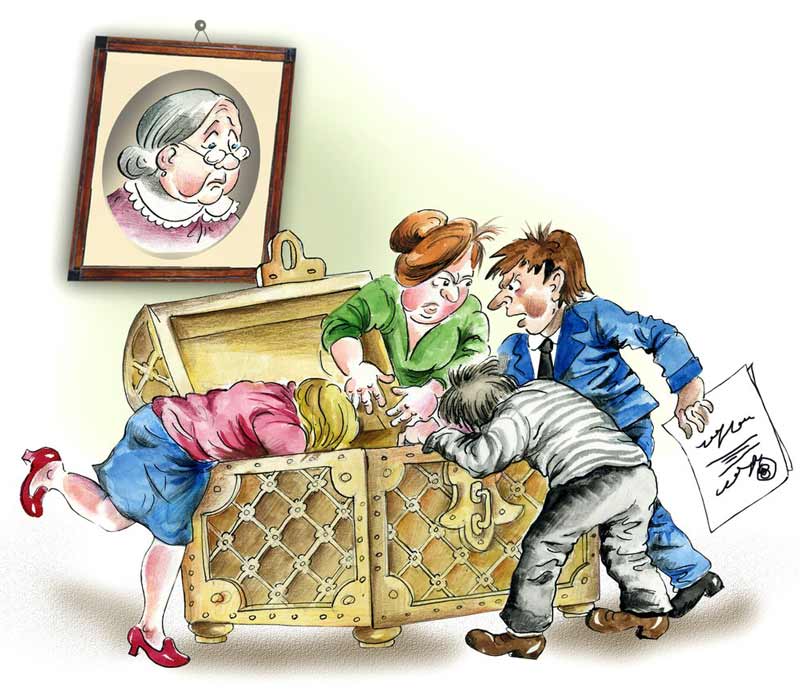Is a gift, made to you immediately before a relative dies, valid even if the will says something different?

Is a gift, made to you immediately before a relative dies, valid even if the will says something different?
Judgment has recently been handed down in the case of Davey -v- Bailey. This case addressed the distribution of the estates of Alan and Margaret Bailey, a married couple who each died at the age of 71 within a few months of each other. They died in 2019 and each left a will (dated 28 May 2009) in which they both appointed the other as sole executor and sole beneficiary of their estate. Mrs Bailey predeceased her husband, dying in January 2019.
After his wife’s death, Mr Bailey met with the solicitor who drafted the previous will in order to make a new will. He died of a heart attack in May 2019, before he was able to sign the new will. As his wife had died before him, Mr Bailey received the entirety of her estate in accordance with the terms of her will. However, on his own death a few months later, Mr Bailey’s gift of his own estate to his wife therefore failed. As he had not provided for anyone else to inherit in the event of his wife dying before him, the entirety of the estate passed under the law of intestacy. The law of intestacy sets out who will inherit an estate in a situation where a person dies without having made a will or a valid will. In this situation, as the Baileys had no children, the entirety of the Baileys’ estate passed to some of Mr Bailey’s family. Mrs Bailey’s family inherited nothing at all.
Mrs Bailey’s sister and brother, however, claimed that shortly before their deaths, Alan and Margaret had made so-called ‘deathbed gifts’ to them of two large sums of money (allegedly via a MacMillan Checklist completed by the deceased couple when Mrs Bailey was terminally ill), and a property. The property was allegedly gifted by Mr Bailey handing a metal box to his wife’s sister containing the title deeds to the house.
So, were they successful?
There are three requirements that must all be satisfied in order to constitute a valid deathbed gift:
- The Deceased must have good reason to anticipate that they are going to die in the near future from an identified cause.
- The Deceased makes a gift which will only take effect if and when that impending death occurs, and until then the Deceased has the right to revoke the gift at any time.
- The Deceased delivers “dominion” over the subject matter of the gift to the recipient. This is a particularly tricky concept to define, with case law suggesting that “dominion” means physical possession of (a) the item in question or (b) some way of accessing the item (for example providing the key to a box) or (c) documents which prove the entitlement to ownership of the item.
Despite having sympathy for Mrs Bailey’s siblings in the circumstances, the judge in this case found that the strict requirements set out above simply weren’t met in any of the alleged gifts. The entirety of Mr and Mrs Bailey’s estate would pass to Mr Bailey’s family members as per the law of intestacy.
Fundamentally, therefore, this case shows how difficult it is to rely on a ‘deathbed gift’. The courts will apply the requirements very strictly. If your will does not correctly reflect your wishes, it is crucial that you speak to a solicitor to discuss making a new will or codicil. This can be done urgently if required if you are seriously ill, provided you have the required mental capacity to do so.
There are however circumstances when a gift or promise made to you immediately prior to your relative passing away can be relied upon. Ordinarily the starting point is that if there is no valid will making provision for you, whatever the deceased may have said, you are not entitled to anything. However, promises or gifts made either during the deceased’s lifetime or indeed just before death do open up avenues to challenge the situation. This is a complex area of law so if you have any concerns you may be entitled but are not named in the will you should seek further advice.
Speak to our Family Disputes Team
Catherine O’Reilly is one of the family dispute team at IBB Law and as such is able to provide advice if you find yourself in this situation. Contact Catherine on catherine.oreilly@ibblaw.co.uk
